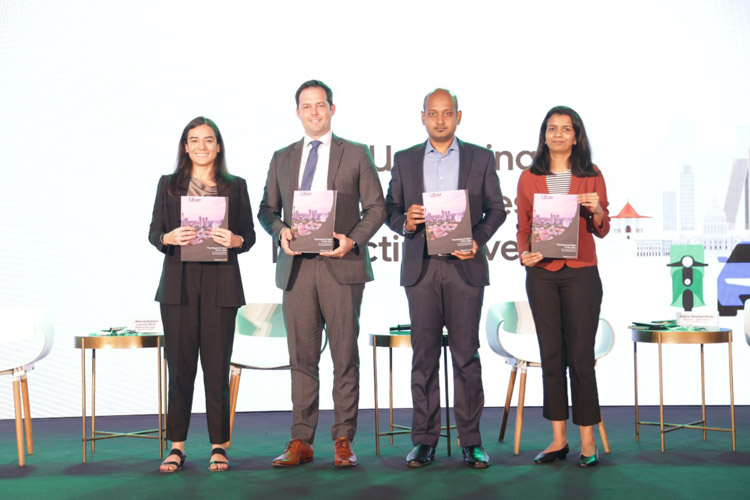October, 4, 2022

Uber’s 2021 Sri Lanka Economic Impact Report, compiled by Public First, a UK based policy research firm, was launched Monday (03) at an event in the national capital. The report highlights how Uber and Uber Eats have helped transform the on-demand economy for consumers, drivers and delivery-partners, and the wider community by generating LKR 81 billion for the Sri Lankan economy in 2021.
Hon’ble Prime Minister Mr. Dinesh Gunawardena, Government of Sri Lanka, graced the occasion as the Chief Guest. He was joined by Uber’s Senior Director for Public Policy & Government Relations for the Asia Pacific region, Mr. Mike Orgill; Uber’s Director of Regional Operations for India and South Asia region, Mr. Shiva Shailendran, along with Uber Sri Lanka’s leadership team members, including Ms. Bhavna Dadlani Jayawardana, General Manager, Uber Eats; and, Ms. Thanushika Sivanathan, Country Manager, Uber Rides.
Commenting on the Economic Impact Report, Hon’ble Prime Minister Mr. Dinesh Gunawardena, Government of Sri Lanka, said, “Sri Lanka is at an inflection point as we work towards providing a supportive political and regulatory environment besides macroeconomic stability during this period of fiscal consolidation. We appreciate the commitment of global companies like Uber who have become a part of the fabric of Sri Lanka - making economic impact at scale and positively contributing towards transforming the country. We look forward to their continued good work while making impactful contributions for decades to come.”
Commenting on the report, Mike Orgill, Senior Director, Public Policy & Government Relations, APAC at Uber, said: “Uber has been an important engine of economic growth and opportunity in Sri Lanka since 2015, but we never knew the extent of our contribution. This research shows for the first time the impact on drivers and delivery partners, consumers and the economy as a whole. It reaffirms the importance of flexible work opportunities and spotlights how expanded mobility options and choice as part of the on-demand economy have created critical value for the Sri Lankan economy. It makes our resolve stronger than ever before to continue working for the community and deploying our technology and global expertise to contribute to Sri Lanka’s growth.”
The report takes a deeper look into the factors behind this economic contribution and the enhancement of safety and sustainability of the industry. It highlights how both Uber and Uber Eats have continually evolved to meet changing needs, used technology to save time, helped expand mobility options and choice, supported small businesses, and provided flexible earning opportunities for thousands of drivers and delivery-partners in Sri Lanka.

Key findings of the report include:
Uber’s contribution to the Sri Lankan economy
On-demand services boosted small business recovery
Drivers and delivery people value flexibility
Consumer behavior helped to drive innovation
You can read the full report, including the methodology here.
* One of the most important measures of economic welfare – the amount you would pay someone to voluntarily give up a good or service. If a good has a zero consumer surplus, that implies we can take or leave it – whereas goods with a high consumer surplus are playing an important role in our lives.
Video Story